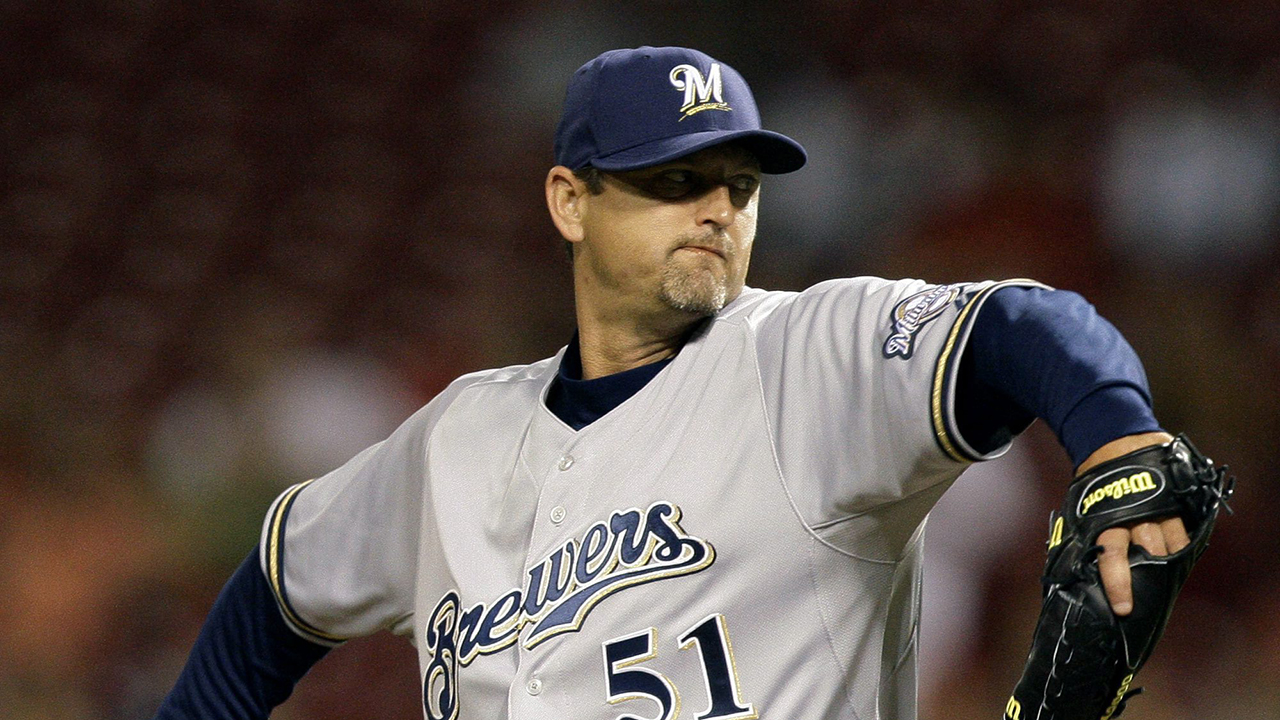On the surface, the act of filling out a fake ballot for the Baseball Hall of Fame seems self-indulgent and unproductive. But when baseball fans go ahead and do so anyways, the hard choices from the current field of players can draw out some conflicting personal biases and views.
This isn’t a question of the steroid era. That’s to be found in any of the other thousands of columns and blog posts on the topic.
In my attempt to parse between 18 names that I personally found worthy of consideration for Cooperstown, I noticed two of my own deeply-held views on baseball in conflict for the first time. And while there is no urgency to narrow my imaginary ballot down to 10, I still can’t ignore the conflict, and need to resolve it somehow before I carry on my daily ponderings about the game.
The first belief that entered my consideration of the ballot is the idea that starting pitchers are better players than relief pitchers. If relief pitchers were so good, the thought continues, then they’d be starters, wouldn’t they? And if you have exceptionally talented young pitchers such as Aaron Sanchez or Roberto Osuna, then you are well-served to work them into your rotation to maximize the number of innings that are being pitched by good pitchers. This general principle is also why the concept of 100-inning relievers appeals to me.
The second belief deals with the structure of the Hall of Fame itself, and my conviction that it should be a “Big Hall.” Even for those who have grown frustrated with the Hall of Fame, it’s still the institution that should capture and recognize the history of the game. But for much of the past 40 years, it appears that a generation of voters has delighted more in creating an exclusionary museum that took as much pride in excluding players as it did honouring them. This in spite of the fact that we had entered an era of multiple expansions, where there should have been more players recognized, not fewer.
(To be fair, a new generation of voters has voted in multiple players several times in recent years, so the tide is turning.)
Considering those two beliefs, the question raised is if you believe that the Hall of Fame should accurately reflect the history of the game, to what extent can you exclude closers from the story of the past 30 years of baseball? And how can you diminish the candidacies of Trevor Hoffman, Billy Wagner or Lee Smith within that context?
For the past several years, the presence of Smith on any ballot immediately elicited groans, as his candidacy seemed more based on his former standing as the all-time leader in a statistic that few modern and progressive fans value: the save. With so many worthy candidates on the ballot, a vote for Smith struck me as a deliberate thumbing of one’s nose to the newer understanding of the game.
If you lump Hoffman and Wagner in with Smith and dismiss them outright, it makes room on the ballot in the short term. But it also ignores the manner in which the game has been played and managed, and the fact that those players could only excel within the context in which they were placed.

Maybe we’d like to live in a world where a pitcher like Billy Wagner threw more, including some regular non-save situations. But that was what he was asked to do, and by and large, he excelled throughout his career the role.
You might look upon Trevor Hoffman as merely an accumulator of a mostly irrelevant statistic, but given what we know about the volatility of bullpen performance, longevity in the role of closer is not an insignificant achievement.
It’s difficult to predict if the impending candidacy of Mariano Rivera will help or hurt these sorts of players in their bids to eventually get to Cooperstown. It could be that Rivera is seen as the exceptional case of a Hall-worthy closer, and that the others are second-class versions. Though it is this sort of thinking that has kept Tim Raines out of the Hall thus far, by virtue of him being the second-best leadoff hitter from an era when the role mattered to the narrative as much as the strategy of baseball.
It is likely too late for Smith, given the backlog of candidates who are likely more deserving at the moment. Hoffman seems to have stronger support, and may make the grade in the coming years, while it seems to be a tough slog for Wagner, in spite of the fact that his numbers are better than Hoffman’s.
The reality is that the Baseball Hall of Fame is not yet a Big Hall, but in considering closers for my own personal view of the history of the game, I’ll be less likely to dismiss them out of hand.
I might even get used to the idea of Roberto Osuna spending the rest of his career in the role.









